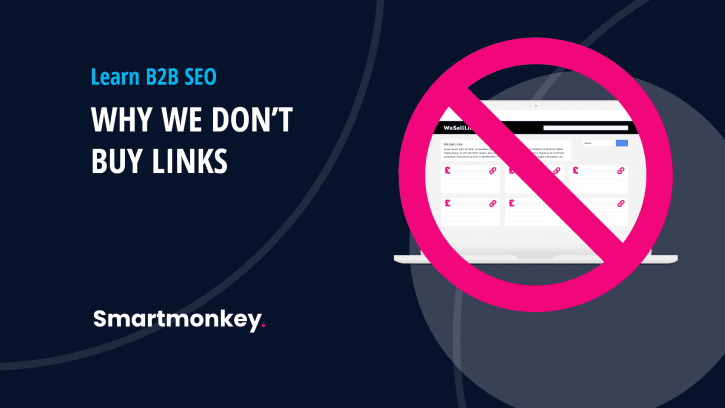Why we don’t buy links – and neither should you

When it comes to ranking in Google, there isn’t a quick fix or button we can press to make us all suddenly appear in position 1. However, in general, we do know what Google wants – especially after the recent Google ‘leak’. And one of the biggest ranking factors Google looks for in a site is backlinks.
Backlinks are nothing new – but they did look different once upon a time. Pre-2012, the quality of backlinks wasn’t looked at – volume was important, and as such, it was very much about building any links to a site to showcase its authority. But the Penguin update in 2012 changed all of that; websites were penalised for having low-quality and spammy links to their sites, causing them to drop to the bottom of the rankings.
To combat this, SEOs started looking at ways to earn quality links organically. And so, link building became digital PR.
As you’d expect, digital PR has evolved in the 12 years since the Penguin update changed backlinks forever. And as Google’s algorithm gets smarter, even more focus has been put on both quality and relevancy when it comes to backlinks. This means that any – and all – links built must be on quality websites and be topically relevant to the brand (and publication). Anything other than this is usually – at best – ignored by Google and at worst – penalised.
That’s why a focus on storytelling that resonates with your brand’s audience is key to getting ahead in the search engines.
While paid links have been around for almost as long as Google has, there has been a resurgence in websites using them as a quick fix in recent years. There’s no denying that naturally building links is hard; fewer journalists than ever before, combined with an industry that has grown at an almost unprecedented rate, means that competition to earn these relevant and quality links that showcase Expertise, Experience, Authority and Trust (EEAT) is becoming even more difficult. But buying them is not the answer and can, just like when the Penguin update was first released, lead to websites being penalised for taking a shortcut and essentially trying to cheat the system. And as we’re in the business of getting Google to trust websites as a source of accurate information, it’s not something we would ever consider.
And neither should you.
If you want to get ahead in the search engines, you need to focus on your site first and foremost – make it the best it can be, giving the best user journey possible and making it easy for people to find products and information and to get in touch. Once your site is in a good place, only then should you start driving people to it with digital PR. After all, just as you wouldn’t try to sell a car that didn’t have any seats, you wouldn’t want to spend time and money directing people to your website if it didn’t work for your customers.
Your digital PR efforts should be authentic and encompass everything about your business and what it stands for. Putting your business at the heart of digital PR will mean that you naturally tick all the boxes that Google is looking for and showcase EEAT without having to force it. And journalists will see this too.
And that’s exactly what we do at Smart Monkey.
We work with our clients to understand their business, goals, and customers, and develop a strategy based on what will make the biggest difference to them, to drive demand for their products or services, organically – without paying for links.
